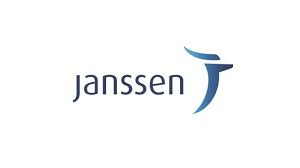Article
Janssen Announces Phase 3 Data Results: Guselkumab Improves PsA Symptoms
Author(s):
Guselkumab is the first and only selective interleukin inhibitor therapy in the US that's approved for both moderate-severe plaque psoriasis and active psoriatic arthritis regardless of prior TNFi exposure.

Janssen announced the latest phase 3 data for first-in-class guselkumab (TREMFYA) that showed significant and durable improvement in signs and symptoms of active psoriatic arthritis (PsA) while maintaining its safety profile in patients with inadequate response to tumor necrosis factor inhibition (TNFi-IR).
The COSMOS study, conducted by a team of investigators led by Laura C Coates, Nuffield Department of Orthopaedics, Rheumatology and Musculoskeletal Sciences, University of Oxford, met its primary endpoint.
Improvement in Joint Symptoms
A significantly higher proportion of guselkumab-treated patients, 44.4%, versus 19.8% of placebo-treated patients, achieved at least 20% improvement in the American College of Rheumatology criteria (ACR20) response at week 24. And the effect of guselkumab treatment in the TNFi-IR patients was shown by week 4.
At 1 year (week 48), response rates continued to improve. 57.7% of guselkumab-treated patients reached ACR20 by week 56 with a similar safety profile.
Guselkumab is unique in being the first and only selective interleukin (IL)-23 inhibitor therapy approved in the US for moderate to severe plaque psoriasis as well as active psoriatic arthritis regardless of prior TNFi exposure.
Physical Function, Fatigue and Health-Related Quality of Life Improvement
A higher proportion of guselkumab-treated patients versus placebo experienced clinically meaningful improvements in physical function at week 24. At week 48, it increased to 53%.
Improvements in physical function were measured by the Health Assessment Questionnaire Disability Index (HAQ-DI). Health-related quality of life was measured by assessing physical and mental component summary (PCS and MCS) with scores from the 36-item Short-Form Health Survey (SF-36).
Guselkumab-treated patients reported better physical aspects in regards to health-related quality of life compared with the placebo group.
As for improvement related to fatigue, a higher proportion of guselkumab-treated patients reached at least a 4-point increase in Functional Assessment of Chronic Illness Therapy-Fatigue (FACIT-Fatigue) compared with the placebo group (42.9% vs 20.8%) at week 24.
At week 48, this response had increased to 55.6%.
Improvement in Skin Clearance
Patients treated with guselkumab who had at least 3% body surface area psoriatic involvement plus an Investigator’s Global Assessment (IGA) score of at least 2 at baseline achieved total skin clearance (100% improvement in Psoriasis Area Severity Index), making the results significantly higher than those in the placebo group (30.8% vs 3%).
At week 48, 53.4% of guselkumab-treated patients had achieved complete skin clearance.
Safety Profile Consistency
In the guselkumab-treated group, low rates of adverse events that led to discontinuation and serious adverse events were reported compared with the placebo group.
"Results from this study provide further evidence that TREMFYA is effective in treating patients with various manifestations of active psoriatic arthritis even when TNF inhibitor treatment has failed," Soumya D. Chakravarty, M.D., Ph.D., Senior Director, Strategic Lead, Rheumatology Therapeutic Area, Janssen Scientific Affairs, LLC said in a statement.
"Active psoriatic arthritis is a chronic and often debilitating disease,” she continued, “so patients need treatment options with durable efficacy and an established safety profile. It is our goal to advance therapeutic options for people living with active psoriatic arthritis to enhance their chances to live life with reduced symptoms of active PsA."
The study, "Efficacy and safety of guselkumab in patients with active psoriatic arthritis who are inadequate responders to tumour necrosis factor inhibitors: results through one year of a phase IIIb, randmised, controlled study (COSMOS)", was published in the Annals of the Rheumatic Diseases (ARD).





